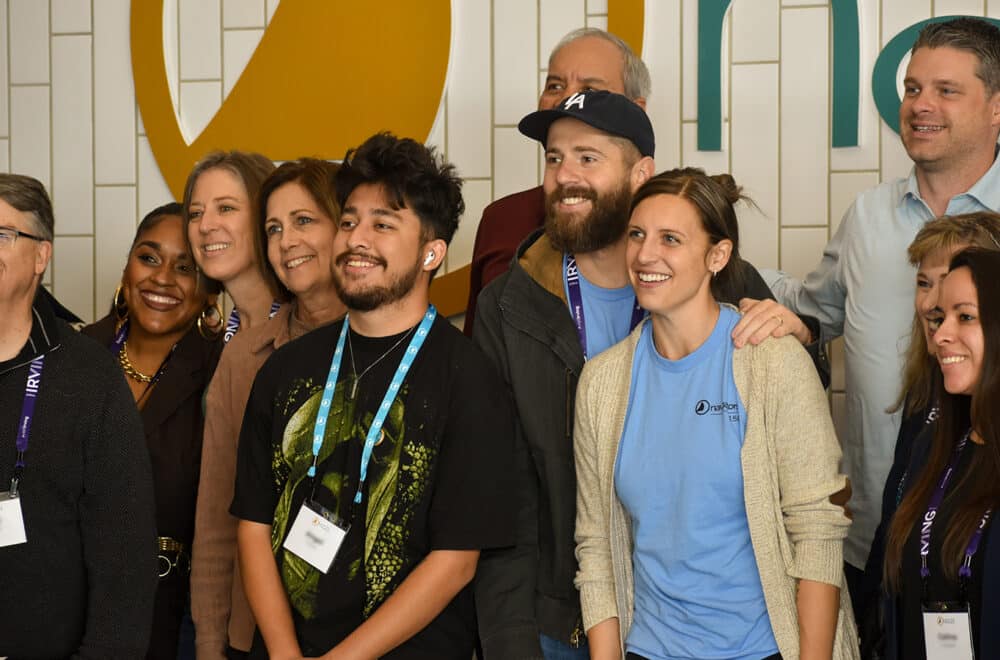Francis Chan is well-known as a pastor, best-selling author, and disciplemaker. But in many ways, Chan is a worship leader. Not in the “sit-at-the-piano-and-sing” sense, but in the way he draws people into the presence of God and demonstrates what it means to stand—or kneel—in awe before our magnificent God. His worshipful posture was evident as we spoke the afternoon before he addressed The Navigators National Staff Conference in November 2015.
If you could speak to the church at large, what would you say?
The first thing would be do you genuinely know God? Do you honestly, with your heart and soul and mind, do you long to be alone with Him, more than anyone else? Be honest with that. He could very well say “Sorry, I never knew you.”
Then I’d also ask what are you doing with the gift you have you been given, not just a talent, but a supernatural, spiritual manifestation of the Spirit of God for the common good. That’s an intense responsibility.
Then I would ask about the Great Commission. Are you going out and making disciples? Someone outside your immediate family. I’m talking about someone you can tell “Follow me as I follow Christ.”
What about those who would say, “This one-on-one thing, I’m not wired that way”?
Then get three or four—get 12! As long as you are looking at a group of people and modeling a lifestyle they can see, and looking them in the eyes and saying follow my example as I follow Christ, you’re making disciples.
A lot of times in our discipleship we oversimplify it to just “let me get the information from my head into your head” and that’s not what I see in Scripture. Jesus lived life with the disciples. These studies we have, getting together and talking about Scripture, if it’s not coupled with walking through life together then we’re falling short.
How should discipleship happen in the local church?
I think that’s what the church should be about. In our churches [in San Francisco], we expect everyone to be making disciples. We’ve structured our church differently. It’s me finding reliable men and giving them a way of living—not just passing on information.
Do you think discipleship looks different for the next generation, those in their 20s, and if so, how is it different?
I think the younger generation is getting a much more holistic view of discipleship. That it’s not just “let’s meet once a week and I’ll pass on information to you.” They want to see an older man who still lives by faith, an older woman who still takes risks.
You made a very conscious decision a few years ago to downsize your lifestyle. Is that turning out as you expected it to?
Yes and no. Yes, in that it did set us on this course of not putting ourselves first but to really consider the needy, to be rescuers. Where it changed was realizing we could only fit so many people into our home. So then when we wanted to take in more people, we realized, oh, we really aren’t allowed to have people live in the garage. So we decide to expand the home a bit. We went from 1,000 square feet to a 1,600 square foot house. Because there are nine of us—my wife, Lisa, and our seven kids—and we’d always have four or five people living with us, so in order to fit us all in…
That’s still a lot of people for that size house.
Yeah, and two bathrooms. We might have 13, 14, 15 people in the house. That’s a lot of people for two bathrooms. Especially when 10 of them are women …[laughter].
My Bible college journalism professor said there is one question you could ask any Christian in a place of prominence, and that is, “How do you keep yourself from becoming prideful?” How would you answer that question?
The only thing that really works for me is my time alone with God. I wrote something down this morning, which is “a deep understanding of God’s sovereignty and my mortality results in humility.” It’s not often I just wake up and come up with a quote [laughter].
Lisa will tell you I’m always thinking about dying. I’m like, I get it, I’m only one breath away. Because my parents died at such a young age, I don’t think about what I’ll have tomorrow. And when I realize I’m only one breath away from seeing Him, I better preach whatever He wants me to preach. How can you be arrogant when that is on the forefront of your mind?
And then God’s sovereignty. He’s in control of everything. He could make my mind stop working. He could have me be like a beast, like Nebuchadnezzar. He’s that in control. When you really soak that in, that’s what leads me to humility.
What does your time alone with God look like?
The most important discipline for me in my time with the Lord is to meditate on what He’s like, to think about who He is in comparison to me, before I start talking. Before I start reading, … I picture Him in heaven with all of His glory, … I picture angels worshiping Him. Then from there, the Word is different, praying is different, singing is different, confession is different.
Francis Chan started Cornerstone Community Church 20 years ago in Simi Valley, California. Following the Lord’s prompting, he left Cornerstone in 2011 and now is involved in a house church movement in San Francisco. He had three books—Crazy Love, Forgotten God, and Erasing Hell—in the top ten on New York Times bestseller lists at the same time.
Bring it home.
How does your practice of discipleship fit with how Francis Chan describes it? How do you enter into time with God and prepare for worship?




By commenting, you agree to our Code of Conduct.